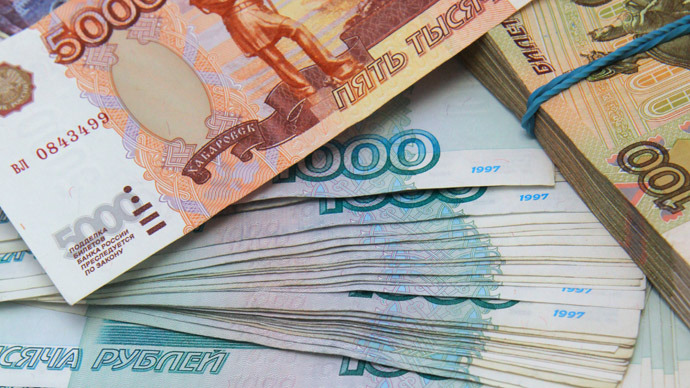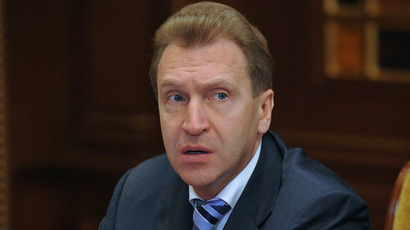Russian CB ready to provide $60 billion to support domestic banks

The Russian Central Bank says it’s ready to make available between 1.5 and 2 trillion roubles ($47.2- $62 billion) to domestic financial institutions if the situation in the banking sector worsens.
The announcement was made by the outgoing governor of the Russian CB Sergey Ignatyev during a special meeting on the measures of securing sustainable economic growth in Russia with Russian President Vladimir Putin.
Ignatyev said that he estimates the current situation as stable. He underlined that last year nominal lending increased 20%, adding that liquidity was in his words 'normal'.
“I wouldn’t say the situation with lending is bad, it is rather what we want it to be,” Ignatyev is quoted by Interfax as saying. “Growth of around 15%-20% in nominal terms is a normal growth for the present situation in Russia.”
He added that in case the situation with liquidity worsens, “the Central Bank is ready to provide up to 1.5-2 trillion rubles using traditional instruments of refinancing."
At the beginning of last year the Russian Central Bank also said it was ready to give local banks up to 1 trillion roubles in case of liquidity deficit. However it was not needed.
During the financial crisis of 2008-2009 the Russian CB issued unsecured loans to domestic financial organizations.
After providing two trillion roubles ($62billion) the bank stopped loaning in 2010 when Russia overcame the peak of the crisis.
In autumn 2010 reports said that the financial institutions had repaid the money.
Now Russian banks use repo loans to replenish their liquidity.
Repo, or a repurchase agreement, is a form of short-term borrowing for dealers in government securities. Within repos the seller agrees to buy back the securities at a later date and for a price greater than the original sale price, the difference effectively representing interest.
Over the past years the upper limit for repo auctions was set at the level of several hundreds of billions of roubles, while during the crisis the limit approached 1 trillion rubles ($31.5 billion).














